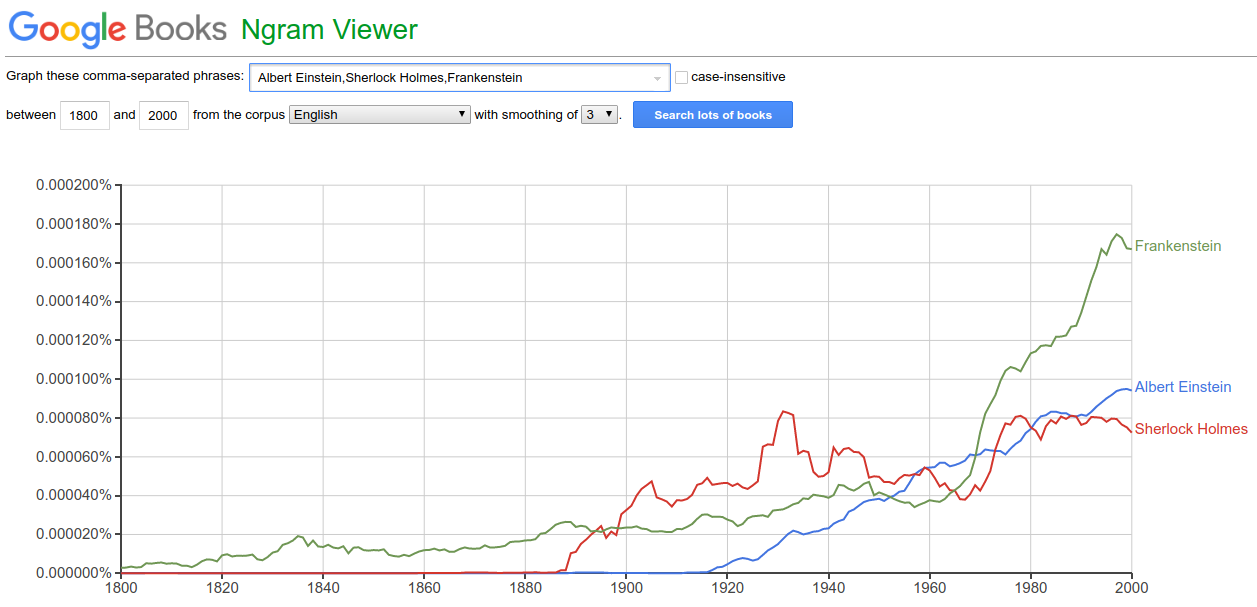How to track down influencers in your market on a budget

An upcoming sustainable fashion business asked
How can I identify key influencers in my marketplace online. What about people in other countries engaged in the same topic I can reach out to?
The objective is to get some quick wins to optimise search strategies on the web to focus on your target categories on interest, and find out who these people are.
If this sounds a little freaky, it kind of is- but then it's exactly what online tracking is about. That's the debate.
Also before we dig in, the key-phrase of network here reminds me of Niall Ferguson's talk on networks and the view that it's actually peoples networks which influence change, not necessarily economics. Thus seeking out, expanding and maintaining your 'network' is beneficial.
"You're tending to overlook the more informal networks... too little
attention has been paid to these networks."
- Niall Ferguson
1. Gather the trigger words relevant to your industry
What are your trigger words. The positive ones! Take them from your mission statement, your deepest core values. Not the corporate silliness the real ones you care about. For our client they were:
- fashion
- planet
- people
- sustainable
- responsible
- diversity
- responsibly
- inability
- lack
- against
Note that we are including the negative ones, it's likely you're framing things positively (and that's good if your intention is to inspire). But keep negative ones in where you see yourself using them because they also hone your search.
Why are we doing this?
If I was a search engine I might be doing frequency analyses on text as a crude measure of relevancy. When people use search engines the results must be relevant. For example, does an article mention these trigger words a lot- what about over the last five years, are they consistent with their content overtime? If so, this person/ and the website is highly relevant.
Take your core trigger words and enter them into your favourite search engine. Be careful to remove and special characters (- " ? # ) etc.

You'll likely find your own website is the most relevant- how true!
1.1 Use quotes to make key word(s) mandatory
You're trying to discover new influences, companies to reach out to- ideally people.
Decide which one word must be present and restrict your search with quotes "" around that word. By doing this you're stripping away results which don't mention your focus word and saying any result must contain my focus word.

The above means any result must involve the word "fashion".
1.2 Strip out obvious noise using "-" minus
Adding minus "-" will do the opposite, striping out anything which includes word you feel have nothing to do with your interests. For us this was:
- academia
Careful! make sure you know a keyword or topic is genuinely not relevant else you're discounting topics which may actually be unexplored ground for you.
Our search query becomes:
"fashion" -academia planet people sustainable responsible diversity responsibly inability lack against

You should also consider putting your own company name and/or personal name in the 'negative' by adding "-myName" to your query. We're already starting to see by now how we can use search engines as a tool for investigation which you can mould to your needs...
Side note: Take use of language into account
Whilst doing these tasks, always bare in mind the words we use change overtime. If we're looking for influences take into consideration how language might change overtime.
As an aside, Google's Ngram project allows you to query word frequency over time as published in books since the 1800's. After this task you might want to take a thesaurus and apply some regression to your language- you'll find that the content you find and the people who have written it vary in age.
2 Focus on people (if you want to)
If you want to focus on individuals, use first-person participle to your advantage.
Add "I'm" to your search query to force your search to only return results which include content using the first person.
Note the use of quote marks, this allows us to contain the apostrophe. It's essentially telling the search engine "hey, everything between these quotes must be within the results you give me".
Our search query becomes:
"fashion" "I'm" -academia planet people sustainable responsible diversity responsibly inability lack against
2.1 Add more industry specific keywords
At this point we realised we were getting somewhere, but why are our results a bit generic.
The answer is that focusing on the emotive words with only one industry specific word means the frequency analysis of our own search has been watered down- so we must add another industry relevant keyword(s) to our query. We chose clothing.
3 Localise your search
What if you're wanting to only find results in a particular country? You can do this by telling a search engine to only include results with "jp" (Japan) "uk" (United Kingdom) etc.
To do this- add site:jp to your search. For example, to target results in Japan with the criteria our search becomes:
site:jp "fashion" "I'm" -academia planet people sustainable responsible diversity responsibly inability lack against
Caveat! What about language? If you try the above you may get lucky however, we've got to of course appreciate if we're targeting other cultures then the language will be different. Mistranslation using translation tools is understood, so be careful only to translate what your most sure about (ask someone).
We've therefore reduced our query down, with translation to the following:
site:jp 持続可能なファッション "私は"
Then after a bit of tweaking:
site:jp 持続可能なファッション "私は" -amazon -pinterest "blog"
Goodness me! For non-Japanese speakers, that's a probably a very poor translation of "sustainable fashion" and first person "I'm", which as far as I'm aware there isn't a direct translation for in Japanese anyway.
Notice we haven't put any minus "-" in our search, you probably will want to do that after your first search but start by casting your search wide, then narrow. For example, on first attempt we got a lot of pinterest results, which might be what you're after. If not, add "-pinterest" to your search etc. This will help you filter out large brands, to individual writers (if that's what you're looking for).
We found:
- Basque based brand 'skunkfunk.' being promoted on w-r-dueedue.co.jp
- Yuuka Okada, Linkedin via her post on ethica.jp which led us to her other writing about her ethical fashion brand INHEELS
- sayegusa / Mr. Saegusa regarding clothing article and website
Results
People we found apparently linked to these core themes are:
- The State of Fashion 2017 - McKinsey perhaps a 'treasure trove' of up to date industry views and names from the research
- Imran Amed
- Achim Berg
- Leonie Brantberg
- Saskia Hedrich
- Johnattan Leon
- Robb Young
- Jem Bendell & Anthony Kleanthous who co-authored The Luxury Report
- Elizabeth Suzann (brand) Money Talk , an honest reflection
- Carlotta Cataldi LinkedIn (Catalonia, Spain) - Graphic facilitator & Sustainability consultant, lead writer on Slow Fashion: Tailoring a Strategic
Approach towards Sustainability - Johanna Jahnstedt & Olivia Sylvan (Sweden) ask How Sustainable is the Fashion Industry?
- Jerry Mander Interview, quite ironic we found given his disdain for technology
- ASOS Anual Report and accounts 2016
- Alice Ruth Payne (Australia) Design, sustainability and Australian Mas-Market Fashion: Three Case Studies.
- Steve Howard (Ikea) [speaking engagements]
(http://thecrowd.me/steve-howard-going-all) on sustainability
Try it yourself with your own angle!
Expanding to new markets? Google's Market Finder
Localise your search, you may want to target other languages- what about translating your search into French and applying the sames steps?
Explore Google's Market finder tool, which breaks down challenges for entering into new markets.

